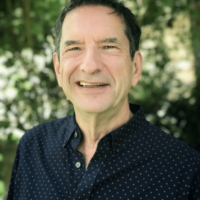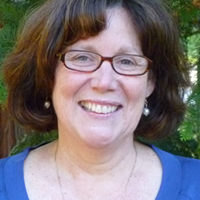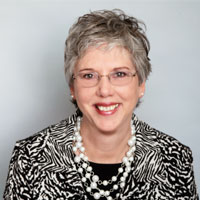Fear. It’s an emotion that we all experience, yet we rarely talk openly about it. A few years ago, “fear” was the lecture theme for one of the weeks at Chautauqua, my beloved summer retreat and spiritual home. The speakers talked all around the topic – the history of fear, the causes of fear, the costs of fear in society, and the behaviors often ignited by fear – yet no one actually talked about how we can learn to navigate fear. No one talked about fear as a normal part of life, or how fear might actually call us forth into our greatest strengths and potential.
I’m not talking about fears for physical safety or survival. I’m talking about the emotional fears that so often accompany “putting ourselves out there” in our lives – fears of being seen, fears of taking a stand, fears of taking a risk for something that is important to us, fears of not being good enough – you know the ones.
Fear as Awareness
Too often, these kinds of fears are equated with weakness – that if we acknowledge our fears or doubts, it sends the message that we are somehow not good enough, not strong enough.
I’m no stranger to this kind of fear and doubt. It’s taken me the better part of my life to realize that acknowledging your fear is actually a good thing. In fact, now I recognize that being able to walk with your fears – to talk with them, listen to them, and work with them instead of fight against them or deny them – is one of the qualities of life mastery.
Furthermore, I’ve learned that my fear often actually points me in the direction I need to go. It’s not necessarily where I wantto go, yet it is the place of my next learning and growth. It requires me to find my safety and strength within myself rather than depending on someone else or a particular set of circumstances to provide that safety. And it keeps me humble. It heightens my awareness that my choices, decisions, and actions have consequences. Therefore, it helps ensure that I will pay attention to every step that I take, even when moving quickly.
I’ve learned that the person who claims to have no fear may not be trustworthy. It’s the person who can embrace his or her fears, speak openly about them, and be willing to work with them instead of being controlled by them, that I am more likely to trust and respect.
Fear As an Invitation
Life is a journey. That’s an overused phrase, yet it’s true. Resistance, doubt, fear, and failure are all normal and healthy parts of that journey. So are joy, happiness, success, and confidence. When feelings of fear, doubt, and resistance arise, they are often signs that we are crossing into unknown territory – experiences or places where we have never been before. When fear and resistance are triggered by memories of difficult experiences from our past, they may be sending up warning flares, letting us know that we need to navigate carefully.
Fear is a natural response when we don’t know what will happen, or how we, or others, will respond. Even more deeply, we may fear who we will become if we fully step in, or how our lives might change.
Yet if we never experience resistance, fear, or apprehension, then we are probably not challenging ourselves to be all that we can be. We’re playing it safe. We’re living in a carefully crafted comfort zone.
The invitation: When fear or resistance shows up, acknowledge it and respect it. Listen to what it wants you to be aware of. Recognize the pitfalls it asks you to notice. And acknowledge when it is actually an old pattern asking to be changed. Thank the fear for the messages it brings. Then take a deep breath, and take your next step.
Four Situations Where Fear is Likely to Arise
Through my personal experience and through coaching others, I’ve recognized four kinds of situations or times in our lives in which fear, doubt, or resistance are likely to arise.
The first is when you are embarking upon a new path. It may be a new path within yourself, or it could be into a new relationship, a new job or career, or a new level of visibility in leadership or public recognition.
The second is when you are discovering and claiming your soul mission or life purpose. No one’s soul mission is small. Your soul wants to play big. It doesn’t care about the size of the stage. It just wants to play full out on whatever size stage you choose. Embracing the bigness of your soul mission can feel overwhelming at first. Your soul mission is your greatest gift to the world, and living it can bring you face-to-face with your greatest lessons. It’s through living your soul mission that you grow into the best version of you that you can be.
The third is at points of commitment – to yourself, to a relationship, to a new job or career, or to another level of presence – another way of showing up in Life.
Finally, the fourth is when it’s time to take action.
Stepping Into Your Creative Power Can Be Scary
Fear and doubt surface at those particular times because you are actively and intentionally stepping into your full, authentic, creative power.
Stepping into your creative power often means that your life will never be the same again. This is because your sense of who you are – your sense of Self – changes. You now know yourself in a new way. You have met a new part of yourself, or you have allowed a part of yourself to have a stronger voice than before. You discover another layer of your unique gifts – what you are here to bring to the world. And you accept and embrace the response-abilities inherent in claiming your place in the world.
When you step into your full, authentic, creative power, your relationships will change. Some will dissolve or fade away, others will take on new forms. And some will further evolve to become even more meaningful, solid, and secure.
The ways in which you move in the world and engage with others will change, because you are feeling, sensing, thinking, and acting from a deeper level of self-awareness, as well as a more acute sense of everything that is happening around you. You will be led by a clearer sense of purpose and direction. The bonus is often a new sense of inner freedom.
All of this may be unknown territory, and that can be scary. Freedom can be scary. It brings questions like Will I be able to handle it? Will I use it well? How will others respond?
Your “emotional survival self” may resist going there. It thrives on safety, security, familiarity, predictability, comfort, and assurance that everything will be OK.
Yet your soul wants to fly. Your soul wants to experience living its fullest potential. Your soul is the source of your life force. If your soul isn’t fed, nurtured, and given wings to fly, it withers.
Engaging Your Fear
The bottom line – get comfortable with fear, doubt, and resistance. Make friends with them. Don’t push them away. Instead, engage them, listen to them, take care of them, and walk side by side with them. You will be stronger for having done so, because they point you towards a greater version of you.
When you acknowledge your fear, work with it, and follow the course that you know deep in your heart is yours, you embark upon a profound journey toward the full and authentic expression of you. And that is the greatest gift you can give to yourself and to those whose lives you touch.
~ ~ ~
If you enjoyed this blog post and found it helpful or inspiring, please share it with your friends on social media by clicking on the icons below. You are also welcome to make a comment below.
You may subscribe to our free weekly newsletter by clicking here.
Related Blog Posts:
- Four Keys for Navigating Transition, Change, and Uncertainty
- Standing Tall, Being Seen, and Taking Your Work to the World
- Engage the Unknown and the Fear Transforms





































